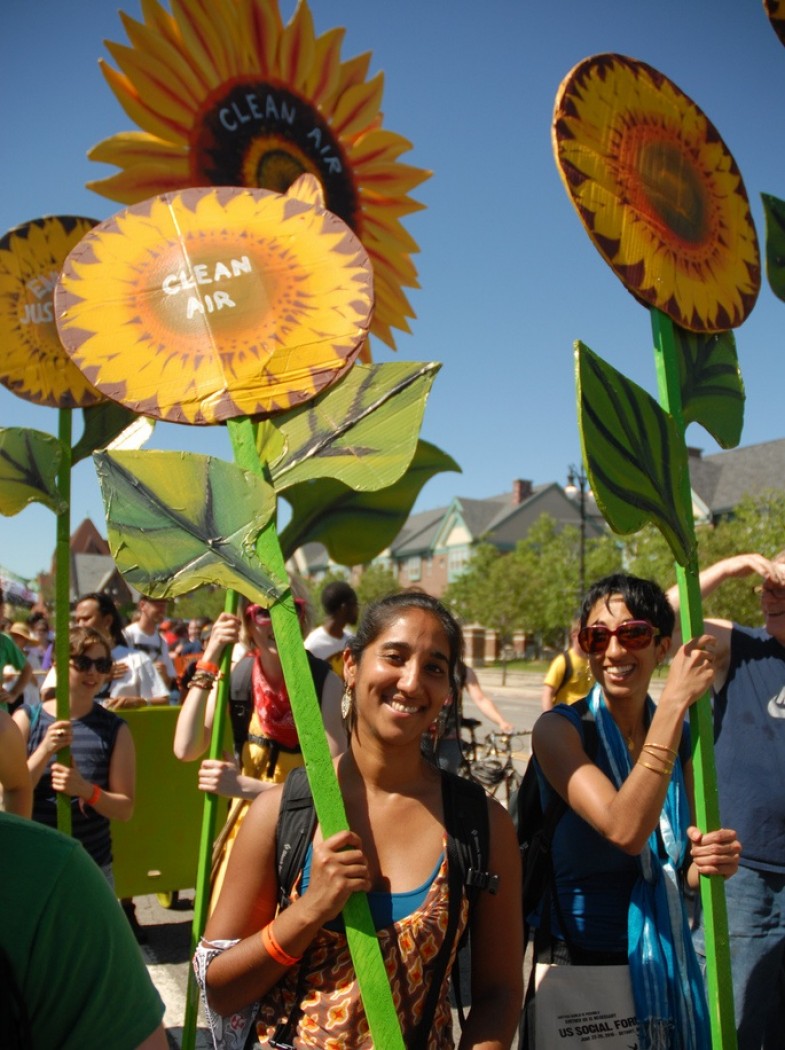An intense day of talking, discovering, searching, debating and connecting yesterday at the U.S. Social Forum.
Over four-and-a-half hours, a richly diverse (age, race, geography, class) group exchanged ideas about the potential of the commons to revise the stories we tell about politics, economics and culture.
The setting was one of several dozen People’s Movement Assemblies at USSF. The room was packed to the rafters with nearly 100 participants, some of whom were just learning about the commons.
On the Commons organized this event along with a host of kindred organizations: The Council of Canadians, Building Movement Project, Red Vida, Little Village Environmental Justice Organization, the Vermont Law School, East Michigan Environmental Action Council and others.
The consensus of nearly everyone participating is that the commons—the principle and practice that many essential elements of society belong to all of us—is a valuable tool for addressing and organizing around a range of critical issues facing us today.
Kim Wasserman-Nieto of Chicago’s Little Village Environmental Justice Organization, which works in a largely Latino neighborhood on the Southwest side of Chicago, addressed the promise of the commons this way: “It’s hard times out there. How do we bring people hope about it all? Well, we still have a lot of things in commons. The notion of the commons links us all together.”
Out of a lengthy discussion, the group identified four central elements about the commons.
* Belonging—to something bigger than ourselves.
- Relationships—as the starting point for collaborative work.
- Benefits—that go to all, not just a privileged few.
- Governance—not just government, but a whole set of ways to manage commons for the greater good of everyone.
Julie Ristau, co-director of On The Commons, summed up the ideas expressed in many comments in defining the commons as, “The radical proposition that there is power in the ‘we’, rather than just the ‘me.’”
Water for All
The Assembly, titled “Emerging Strategies to Re/Claim the Commons”, followed a rousing workshop on the global water comons at Wayne State University, sponsored by Our Water Commons, an OTC project.
Anil Naidoo, an OTC Fellow and Council of Canadians organizer, opened the discussion with this strong point: “The commons is not a warm, fuzzy idea. Yes, it’s there for all of us. But it is a framework for reclaiming power. It’s about governance, how we manage valuable resources for everyone.
“Water is a natural entry point into discussions of the commons,” Naidoo added. “People have been collectively managing their water for eons.”
Marcella Olivera, who helped lead a massive fight against water privatization in Cochabamba, Brazil, which galvanized international interest in water as a commons, said, “The commons is not just a thing in our tradition, it’s also a verb—something you do. We don’t separate the commons from what people do.”





